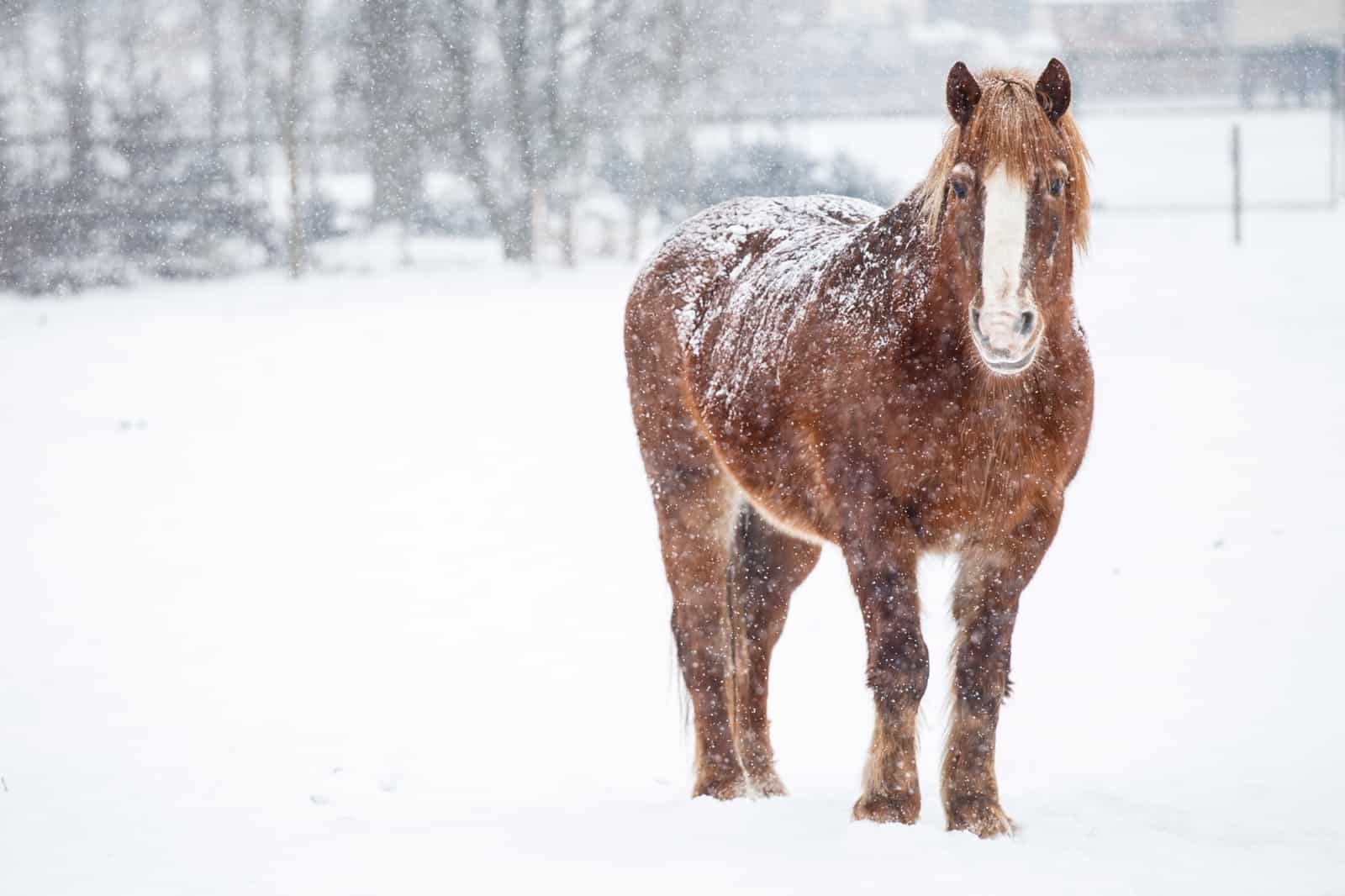Immunosenescence: What Owners of Old Horses Need to Know
- Topics: Anatomy & Physiology, Article, Basic Care, Deworming & Internal Parasites, Digestive System, Equine Care Professions, Grains, Horse Care, Immune System, Nutrition, Nutrition Basics, Older Horse Care Concerns, Other Supplements, Supplements, Vaccinations, Vet and Professional, Veterinary Practice

For instance, understanding immunosenescence and how it impacts senior horses can help owners make decisions regarding multiple facets of their care. At the University of Kentucky’s (UK) senior horse care mini-symposium, held Sept. 27 in Lexington, Amanda Adams, PhD, reviewed immunosenescence and how it affects old horse care. Adams is an associate professor at UK’s Gluck Equine Research Center and focuses her research on the geriatric horse’s immune system.
Here’s a look at how immunosenescence and its effects impact the way owners and veterinarians care for senior horses.
What is it?
Immunosenescence describes a phenomenon in which as horses age, their immune systems decline. This can contribute to an increased prevalence of autoimmune and chronic diseases and increased susceptibility to common infectious diseases
Create a free account with TheHorse.com to view this content.
TheHorse.com is home to thousands of free articles about horse health care. In order to access some of our exclusive free content, you must be signed into TheHorse.com.
Start your free account today!
Already have an account?
and continue reading.

Written by:
Erica Larson
Related Articles
Stay on top of the most recent Horse Health news with















